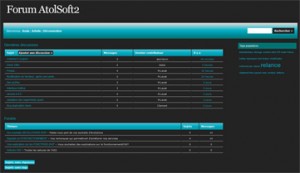Customers whom elect to offer sensitive and painful information to online lead generators can be so in need of cash they try not to see another option. However it is a determination that lots of consumers should come to be sorry for.
After having a loan provider purchases a specific lead, the borrower’s information typically continues to be available in the market, which produces possibilities for fake business collection agencies schemes, fraudulence and identification theft, in accordance with the 2014 Pew report.
United states Banker found adverts on Bing from lead generators that looked like wanting to game the company’s 36% APR limit.
OnlyLoanz ended up being one of several advertisers. Whenever users clicked until the company’s website, they landed on a full page which had an APR disclosure section. “We certainly are a loan provider search community, additionally the Representative APR is from 5.99% to 35.99% Max APR,” it reported.
Then again arrived another disclosure that called into concern the site’s adherence to Google’s policy. “Some lenders in your portal might provide an alternate APR predicated on your particular criteria,” the website reported.
OnlyLoanz would not react to email messages comment that is seeking this short article.
Other programs that advertised on Google looked like in more straightforward violation for the company’s policy.
Mobiloans, an on-line loan provider that is owned because of the Tunica-Biloxi Tribe of Louisiana, ended up being on the list of top outcomes from the Bing seek out “payday loan on line.” Whenever users clicked in the Mobiloans advertisement, they landed on a typical page that listed APRs between 206% and 425%.
Mobiloans failed to react to an ask for remark.
LoanSolo, another lead generator which was recently marketing on Bing, claimed on its website landing page that the organization struggles to  offer clients with a precise percentage that is annual, but that the APR for a short-term loan can cover anything from 200% to 2,290percent.
offer clients with a precise percentage that is annual, but that the APR for a short-term loan can cover anything from 200% to 2,290percent.
LoanSolo additionally could never be reached for remark. A contact bounced right right back as undeliverable, therefore the company’s website listed a phone number that is incorrect.
Who’s to blame?
Bing touts its pay day loan ad ban as being a success. The company said that it disabled more than 5 million payday loan ads during the first six months that the ban was in effect in a January 2017 blog post.
In identical post, Google stated so it has beefed up the technology it utilizes to identify and disable noncompliant advertisements. The search giant declined to deliver extra information to United states Banker in regards to the actions it will take to ensure advertisers follow its loan ad that is payday ban.
But David Rodnitzky, CEO associated with advertising agency 3Q Digital, stated that Bing utilizes both technology and group of human reviewers to determine advertisers that violate its marketing policies.
Genuine organizations which are good clients of Bing can often assist the search giant to attain a compromise, Rodnitzky stated. As an example, these firms may be permitted to market on a various group of keywords compared to the advertiser ly chosen.
“Google is not an organization that you would like to possess on your own bad part,” Rodnitzky said. “They have sufficient market-maker power that that’s not an organization you need to run afoul of.”
Less reputable advertisers usually perform a cat-and-mouse game with Google, relating to Rodnitzky. For instance, he stated that an online payday loan provider might set up a Bing advertisement campaign with $500 on credit cards.
The adverts might run for 2 months before Bing blacklists the internet site, Rodnitzky stated. Then organizers might purchase a unique URL and employ a various bank card to start out the exact same procedure once again.
One of the Bing advertisers that American Banker identified within the summer time had been a prospecting site called DollarFinanceGroup. By very early autumn, the Hong Kong-based internet site had been no further operating, and a contact delivered to the target formerly noted on your website had been returned as undeliverable.
“It’s almost impossible to avoid small-scale fraudulent marketing all the time,” Rodnitzky stated.

